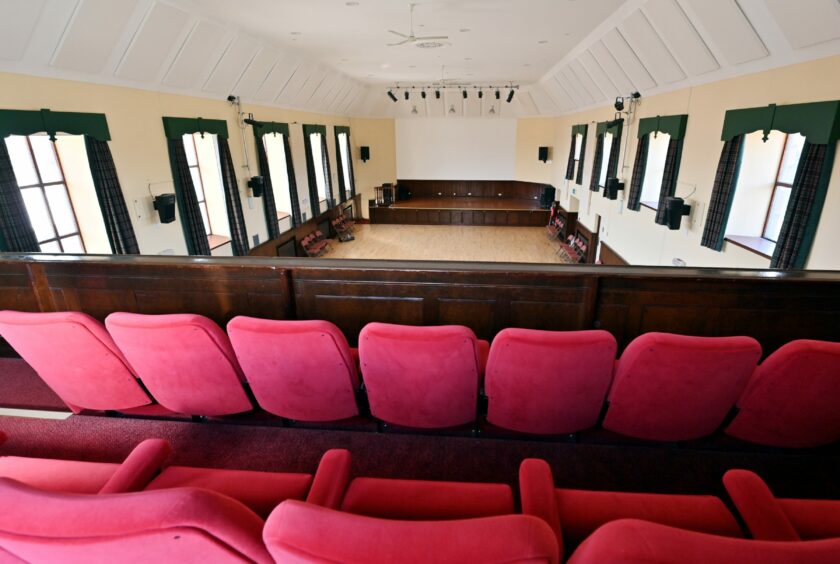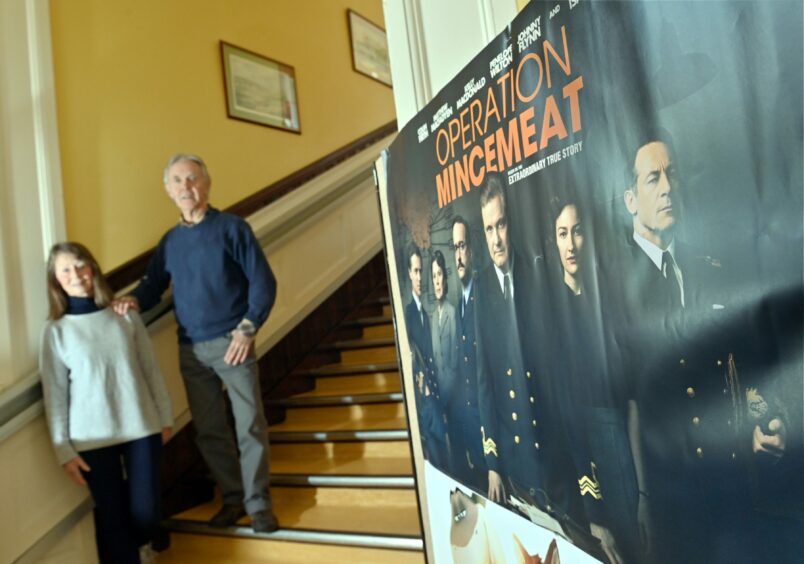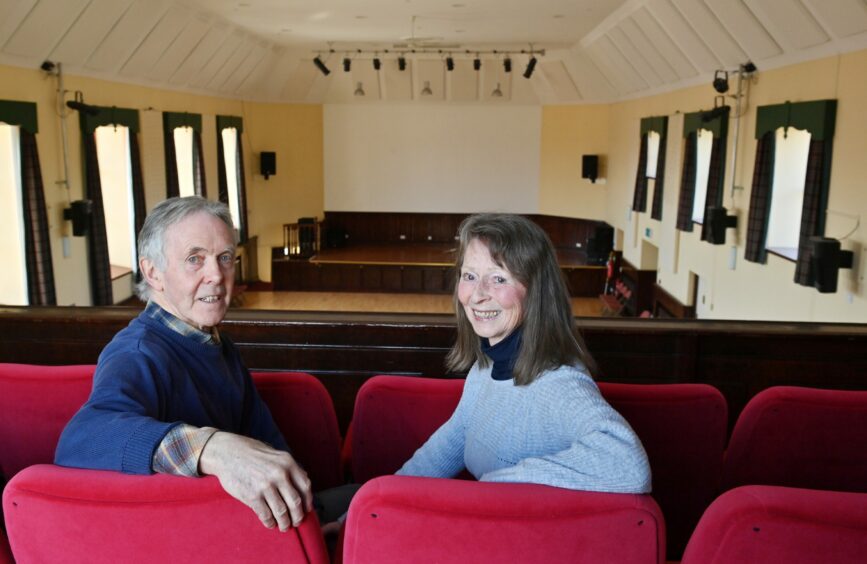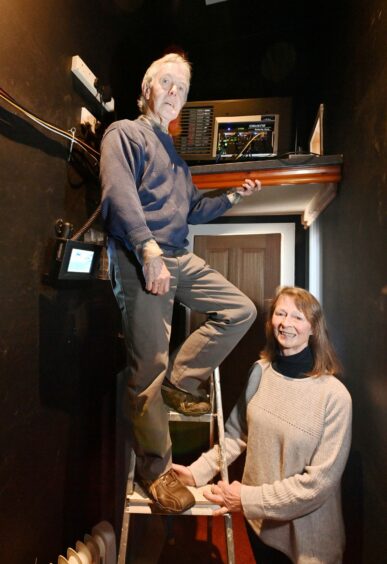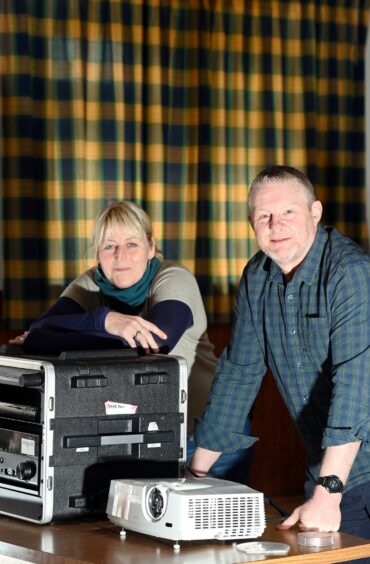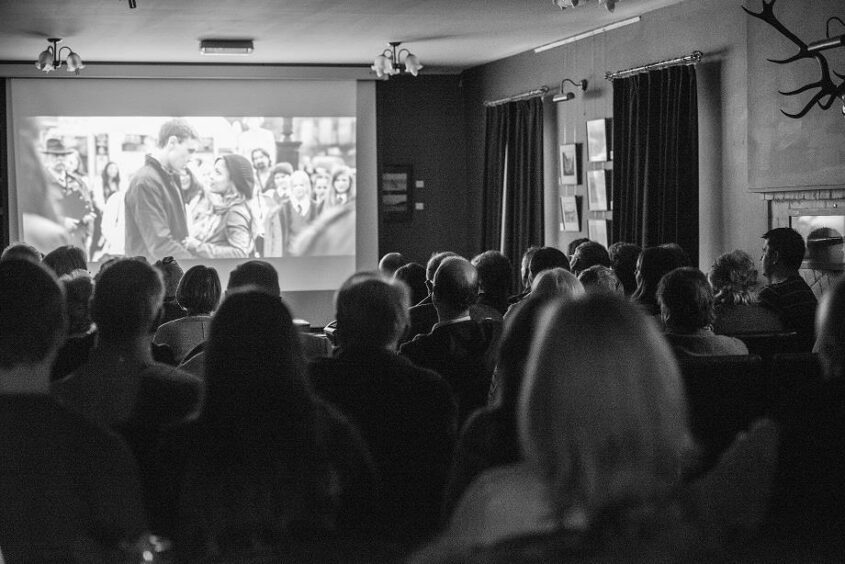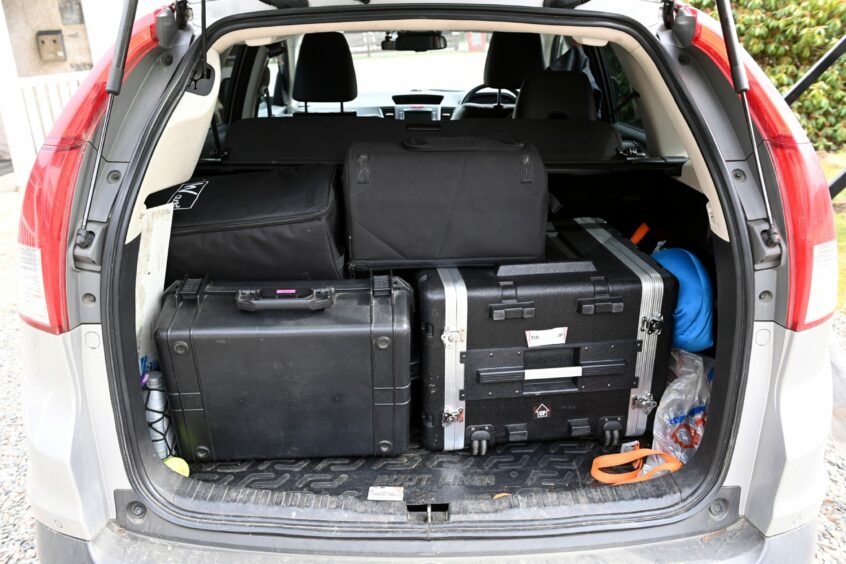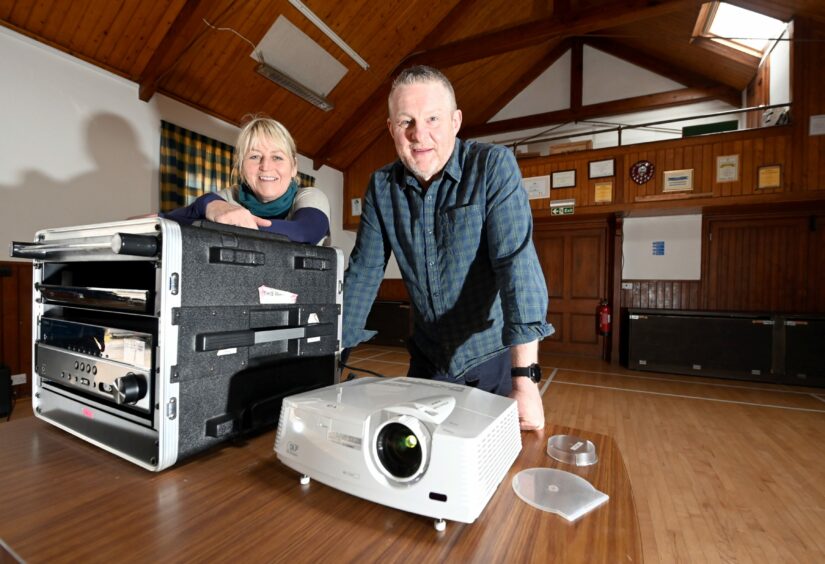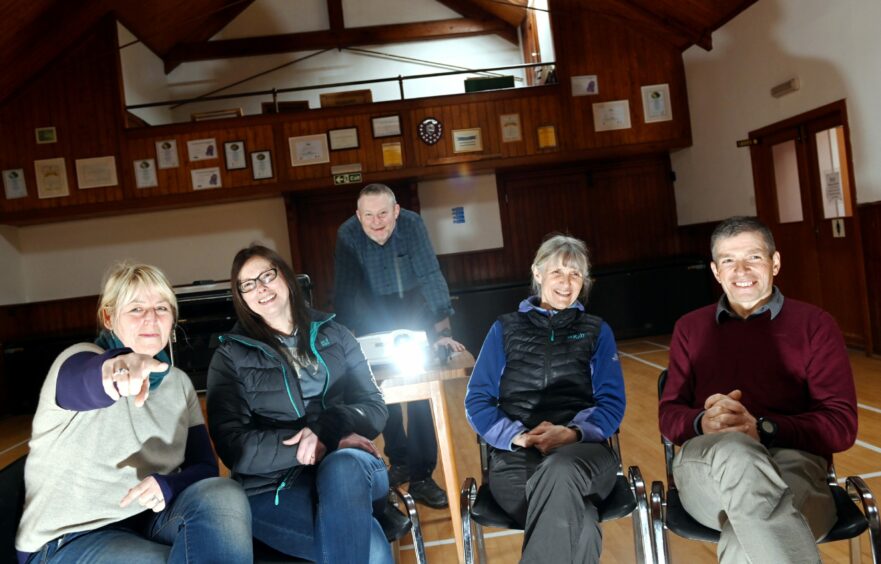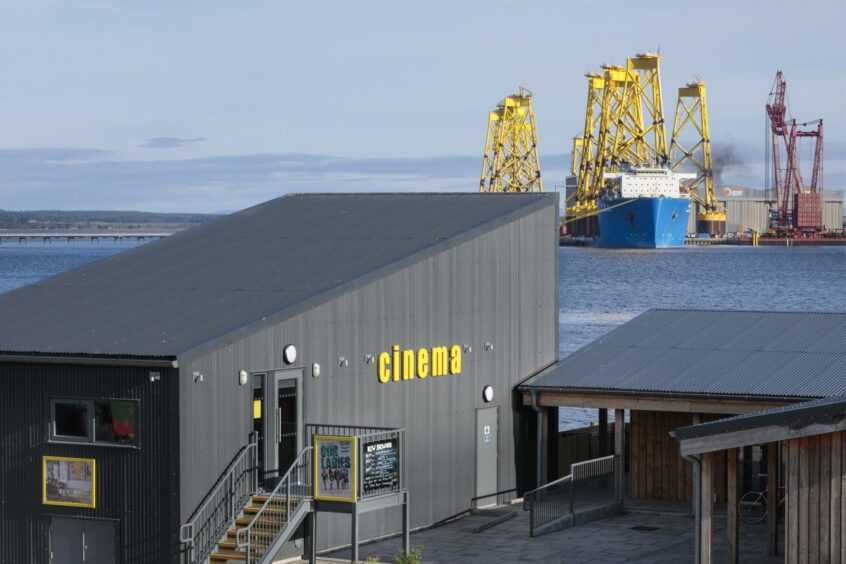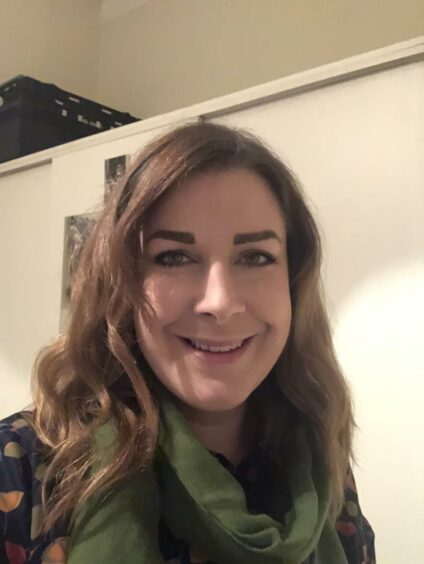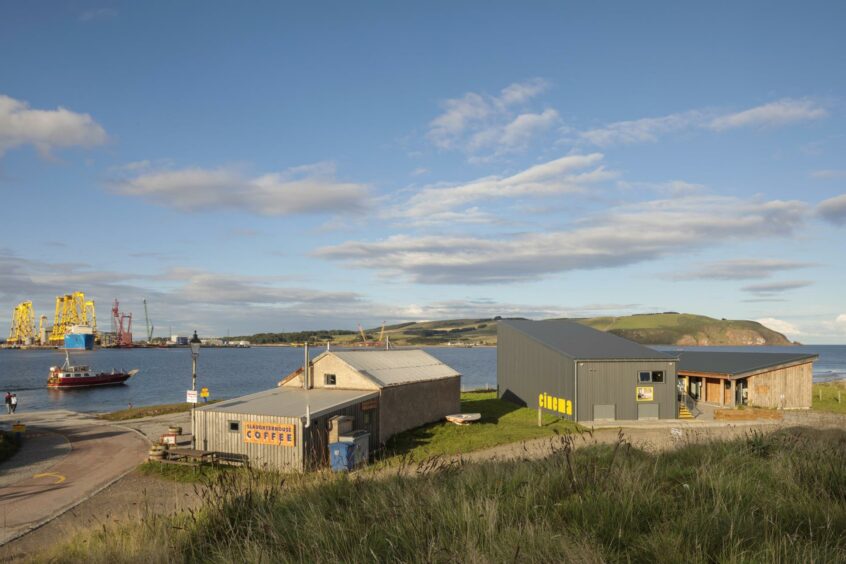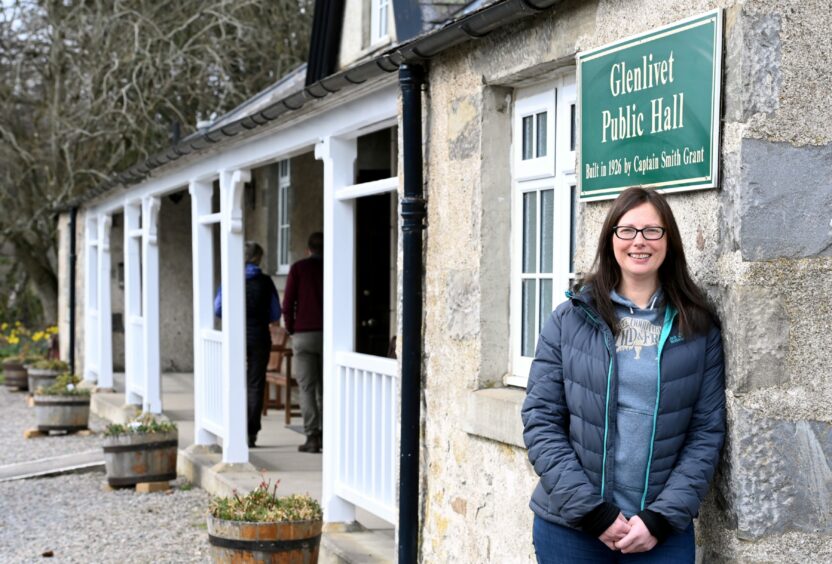The lights are dimmed and the screen flickers to life.
Silence descends upon the audience, faces illuminated by light as the story plays out.
You squeeze the hand of your loved one sitting next to you, or take quiet joy in the fact you can all be together again.
If this doesn’t sound like your typical cinema experience, well that’s because it’s not.
This is cinema with a defiant beating heart, and a determination to bring people together in rural communities.
From mobile equipment sent far and wide, to passionate volunteers and thriving village halls, what is community cinema really all about?
And what difference has it made to enthusiastic cinemagoers, both pre and post-pandemic?
Your Life caught up with some fantastic initiatives, and found out why the opening credits have marked a new beginning for people across the north and north-east.
Keith Hart, of Victoria Hall in Ellon
From the nostalgic red velvet seats to the fascinating history, there is no doubt that The Victoria Hall is one of the key venues at the heart of the community in Ellon.
The site is run by a board of trustees, alongside a management committee.
Work was completed on the building in 1901, thanks to public subscription and a helping hand from Andrew Carnegie’s Trust. Carnegie was a Scottish-American industrialist and philanthropist, and led the expansion of the American steel industry.
Fast forward to present day, and the hall remains home to many a community event, including regular screenings of the latest films on release.
For Keith Hart, who is secretary of the management committee, community cinema has become a popular means of uniting residents of all ages.
From single mothers to the elderly, a wide range of people settle in to watch a film specially selected to suit the regular attendees.
The initiative has proved popular, and in the past, has attracted crowds as big as 269 people for Bohemian Rhapsody, with 260 avid fans for Paddington 2.
Several movie posters adorn the walls at the entrance to the hall, and there’s even a tuck shop alongside a choice of seating for avid filmgoers.
And if you thought film nights in Ellon might be a little amateur, think again; from blackout blinds to sound-proofing measures, alongside beautiful velvet seats on the balcony, you’re in for a wonderful experience.
“The first film we showed was in 2013, it was The Hobbit,” says Keith, who runs the community cinema with the help of fellow volunteers, and his wife Liz.
“We got set up with the help of Film Mobile Scotland, who are now known as INDY Cinema Group.
“We used their pop-up cinema service complete with projector and sound system to make it happen.
“Following an initial survey by them, we decided to give things a try. We selected both an adult film in the evening and an afternoon one for the kids.
“We projected the film on to the white area at the back of the stage and were very impressed. So much so, we made it even better by coating it with special reflective paint; it does the job really well without having to go the expense of buying and installing a ‘proper’ screen.”
As a retired chemical engineer, there is no doubting Keith’s passion.
The group was successful in claiming a variety of grants aimed at developing an impressive cinema venue, using the sophisticated equipment needed to process and screen the latest releases – delivered in encrypted digital file format.
The development was achieved in stages and included transformation of what was previously a storage space into an area fitted with theatre seating and a highly specialist sound-proofed equipment room housing the projector and surround-sound equipment.
Grants have also funded a cinema 5:1 surround-sound system, blackout blinds and acoustic panels to absorb the echo to improve the sound reproduction.
“We are very grateful for the support from the Lottery, Creative Scotland and The Developments Obligation Fund run by Aberdeenshire Council,” explains Keith.
“As well as the image quality on the screen, the surround sound was also particularly effective. Say you’ve got something like a James Bond car chase or aircraft flying over, well that makes it sound really fantastic.”
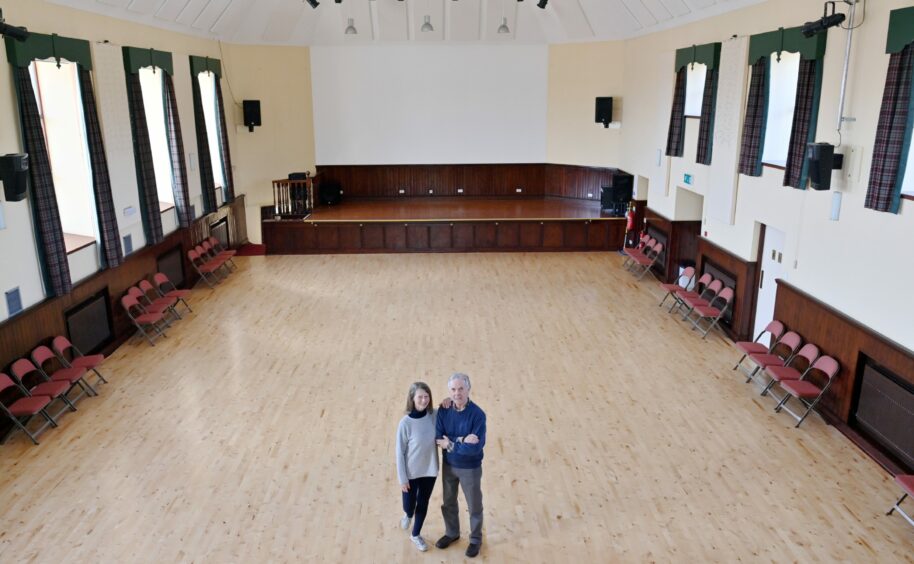
Films are projected on to the wall, with some movie nights attracting more than 200 people. It is clear that community cinema is precisely that, community at its best.
“We like to think that there’s an element of the personal touch as some customers have their favourite seats, or the same spot which they always like to book,” says Keith.
“The frequency of screenings is determined by what is available to us and when. At the moment we are showing recent releases twice a month.
“We soon learned that our audience is generally not attracted to cult films, and teens tend not to come because it isn’t perceived as ‘cool’. It seems that most prefer to go into Aberdeen with their mates.
“But we are popular with single mums, families and people who are, say, 40-plus.”
At £7 for an adult ticket for an evening film, alongside £5 for a concession, it’s a bargain.
“I think we’re particularly important for young mums and elderly people who prefer not to go, or cannot go, to Aberdeen, alongside those who have learning difficulties,” says Keith.
“It takes a minimum of five people to run the cinema, and all the volunteers are well motivated and together, and make the event run like clockwork.
“The volunteers include two running a tuck shop, two at the door and me controlling the lighting, sound and projector operation using wi-fi-linked PCs.”
As the film comes to an end, Keith always tries to personally say thank you and goodbye to customers.
“Like all cinemas and community venues, Covid had shut us down and then limited or audience numbers for a while,” says Keith.
“But we are now seeing the return of our regulars, plus many newcomers, making us feel very optimistic for the future.”
For more information, head to www.victoriahallellon.co.uk/cinema
North East Arts Touring (NEAT)
A registered charity, NEAT was originally formed in 1985.
The group started out by offering affordable small-scale theatre and dance performances in rural communities across the north-east.
The community cinema network was launched in 2013, and was the first of its kind in Scotland.
Five sets of mobile cinema equipment were rolled out to rural communities, and village halls took on a new lease of life.
For Marie Archer, who is community cinema co-ordinator at NEAT, the initiative has been a game changer.
“It became very clear that there was limited opportunity to access cinema for some rural communities,” she said.
“There were some cinema clubs and societies, but no easier mechanism to access film, and nobody to help you to do it.
“What if you are unable to drive to Aberdeen, Inverness, Elgin or Dundee in order to go to the cinema?
“We curate a programme for film, and also support groups in creating a programme for themselves.
Emyr Bell, who is executive director for NEAT, knows all too well the power of community arts.
Having previously been a performer, he also originates from the small Welsh village of Felindre.
With his Welsh lilt still very much in tact, his love of community arts is evident.
“Our mobile cinema kits can be picked up from New Deer, Banchory, Turriff, Dufftown and Insch,” explains Emyr.
“With a squeeze, you can fit a kit into a Fiat 500.
“That includes a six by 10 foot screen which folds down into a little box, two speakers, two stands, the projector and a box where the Blu-ray player and app sit.
“If a village hall doesn’t have their own equipment, they can hire it and be trained in how to use it.”
There is currently around 18 different groups across Aberdeenshire and Moray who are members of community cinema with NEAT, and numerous benefits are on offer.
These include subsidy screenings, which can be put in place if a community wish to show a potentially more risky film, such as a foreign-language film – with a budget made available if the showing does not cover its own costs.
For Emyr, community cinema is about so much more than just the film shown.
“I was previously a performer, and I was used to rural touring,” says Emyr.
“Since stepping over to this side, I have seen the social value of what we do.
“This is an opportunity to not only watch a film, but make social connections.
“For a lot of rural communities, there are not that many places for people to socialise.
“This is an opportunity for people to come together. It’s not just the cultural value, it’s the social value as well.”
Marie has worked in the creative industries for more than 25 years, and believes the pandemic has proved just how sorely the arts, and therefore community cinema, is needed.
“There was a point during the pandemic, when I sat on my doorstep and cried,” recalls Marie.
Every cinema in the world went dark. Productions were cancelled and people had no idea when they would be going back to work.
“It felt like the arts had died.
“Yet within a few weeks, it became clear that people needed film content; to understand the place they were in, and what was happening.
“To have that connection.
“Promoters are exhausted from two years of the pandemic. Our village halls need to re-open though, communities need them.”
For those who still feel anxious about mixing with others, community cinema offers the added bonus of being closer to home.
“People are needing to re-connect, but they also want to feel safe,” says Marie.
“I think cinema is coming back stronger and better, I don’t think it will die.
“There are some amazing new British films, and we can bring them straight to community halls.”
NEAT has recently supported food banks to do screenings, and also works with groups such as Community Larder.
During the pandemic, a digital network was created, with the opportunity to put questions to the director of the film come the end.
“Audiences from Argyll, Bute and Tiree all came together,” says Marie.
I think lockdown taught us that a screening can connect you with the world.
“We’re stronger, better, with the values we always had.
“It’s the power of you being centre in that story, the power of storytelling.”
Community cinema can also boast a more quirky showing, with some groups offering an interval.
“We attended a screening at a village hall, where we paused for a cuppa and had a raffle, then carried on with the second half,” says Emyr.
“There’s a care and love which happens, where the promoter knows everyone in the community.
“It’s just as important as the local doctors, where you catch up on the news.
“Mainstream cinema doesn’t thank you for coming, or check that you can get home.”
For more information, head to www.neatshows.co.uk
Anna Terje, trustee and volunteer at Cromarty Community Cinema
It is perhaps no surprise that the historic town of Cromarty boasts its very own community cinema, with 35 seats and a box office.
Already home to the popular Cromarty Film Festival, Cromarty and Resolis Film Society has been running since 2004.
An actual cinema has long been in the making, after the group showed films in various venues before embarking on a mammoth fundraising campaign.
The cinema now sits on the seafront, with four films shown each week.
Anna, who is originally from Finland and is currently a researcher at University of Highlands and Islands, saw the opportunity to become involved in her community.
“We opened the cinema on Jan 31, 2020, so we had just six weeks before we had to close due to lockdown,” she says.
“The initial response had been fantastic, there was such a huge buzz around the place because everyone had been waiting on it.
“We actually had to turn people away.”
With numerous stop-starts due to restrictions, the cinema is now back in full swing and attracts customers from as far afield as Fort William.
“I think it goes beyond the convenience of not having to go to Inverness,” says Anna.
As someone who is relatively new to the area, volunteering has made me feel part of the community.
“There is a sense of agency and ownership, to create this space for local people.
“It’s a sense of belonging, and it’s empowering to see something come together like this from the will of the community.”
For more information, visit www.cromartycinema.com
Rebecca Irons, Tomintoul and Glenlivet Development Trust
Glenlivet Public Hall can be found at Ballindalloch, and a cinema night brings together a fairly dispersed and ageing community.
For Rebecca Irons, who is Glenlivet and Inveravon development officer, the varied programme on offer has never been more important post-Covid.
Films are also shown at Richmond Memorial Hall in Tomintoul, and the initiative was driven forward by the previous chair of the trust, Doug Nisbet, who sadly passed away earlier this year.
“Due to broadband limits, not everybody has the ability to stream films,” says Rebecca.
“Events such as live shows and films are so important, because this is a dispersed and ageing population with limited access to services.
“This has been compounded by two years of social isolation.”
The necessary equipment is collected through NEAT at Dufftown, and Rebecca is hopeful that a more regular programme will get up and running in the summer.
“I think there is still a bit of fear and reluctance from some members of our community,” says Rebecca.
“But that coming together at a cinema night, it’s just so important.”
For more information, visit www.tgdt.org.uk/tomintoul-glenlivet-development-trust

